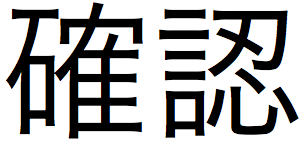
Chapter 14 is “Woods” in the End of the World section. Appropriately, autumn ends and winter begins in this chapter. (Spoiler alert: Like the winter of 2013-14, the winter in the book never ends. Snow on the ground in the last chapter, if I remember correctly.) Boku talks with the Colonel, receives a jacket from him along with warnings about the change in weather, and then hustles to finish up the map for his shadow. Doing so involves trips into the woods. He sits to take a nap at one point, awakes cold and feverish, and then stumbles back to the Town in a daze where the Librarian takes care of him.
There is a well in this chapter, one of Murakami’s pet images/symbols. Interestingly, it’s filled in. Other than that there isn’t much to say. No major cuts by Birnbaum or revisions by Murakami in this chapter. It’s short and sweet. I had to dig pretty deep to find anything at all to write about, but I did find a few sentences Birnbaum cut:
しかしどれだけ森の奥を歩くことが心地良くとも、僕はやはり完全に壁を離れることはできなかった。森の奥は深く、一度そこに迷いこめば方向を見定めることさえ不可能だった。道もなく目じるしもない。だから僕は常に目の端に壁を捉えられる程度の距離を維持しながら注意深く森を進んだ。森が僕にとって味方なのか敵なのかを簡単に見きわめることはできなかったし、そのやすらぎと心地良さはあるいは僕をその中に誘いこむための幻想かもしれなかった。いずれにせよ、老人が指摘したように、この街にとって僕は弱く不安定な存在なのだ。どれだけ注意してもしすぎるということはない。
おそらく森の奥に本格的に足を踏み入れなかったせいだとは思うが、僕は森に住む人々の痕跡をひとつとして目にすることはできなかった。足跡もなければ、人が何かに手を触れたような形跡もなかった。僕は森の中で彼らに出会うことをなかば怖れ、なかば期待していたが、何日歩きまわってみても彼らの存在を暗示するような出来事は何ひとつ起こらなかった。彼らはたぶんもっと奥の方に暮らしているのだろうと僕は推測した。それとも僕の姿を巧妙に避けているかだ。(200)
But no matter how nice it is to walk through the woods, I can never completely separate myself from the Wall. The woods are deep, and if I got lost, it would be impossible to reorient myself; there are no roads and no landmarks. So I continue through the woods with extreme care, always staying close enough so I can always keep the Wall in my periphery. I can’t tell whether the woods are friend or foe, nor whether the tranquility and comfort are merely an illusion meant to lure me in. At any rate, as the Colonel said, my existence is, to the Town, weak and uncertain. I can’t be too cautious.
Perhaps because I never truly entered the deepest part of the woods, I am not able to spot a single trace of the people who live in the woods. Not their footsteps, nor evidence that they had touched anything. With equal parts fear and anticipation, I walk for several days, but there is nothing that would signal their existence. They must live deeper in the woods. Or maybe they are skillfully avoiding me.
As you can see, Birnbaum (or the editor) compresses the first paragraph, getting rid of the last three sentences:
No matter how pleasant this walk deeper into the Woods may be, I dare not relinquish sight of the Wall. For should I stray deep into the Woods, I will have lost all direction. There are no paths, no landmarks to guide me. I moderate my steps.
I do not meet any forest dwellers. I see not a footprint, not an artifact shaped by human hands. I walk, afraid, expectant. Perhaps I have not traveled far enough into the interior. Perhaps they are skillfully avoiding me. (147)
The more I think about it, the more I feel like this change in the translation is the result of an editor and not by Birnbaum. The key phrase—“weak and uncertain”—gets repeated later in the chapter: “My own existence seems weak, uncertain” (149). I can see an editor saying, “Hey, why’s this have to be in here twice?” I can see the red pen scratch out those last three lines and, in the margins, write “tl;dr: I moderate my steps.”
At any rate, not a translation crime worthy of a war trial. Not a cut that I would’ve made, though. I like the illusory nature of the woods, and I like the uncertainty that gets repeated.


